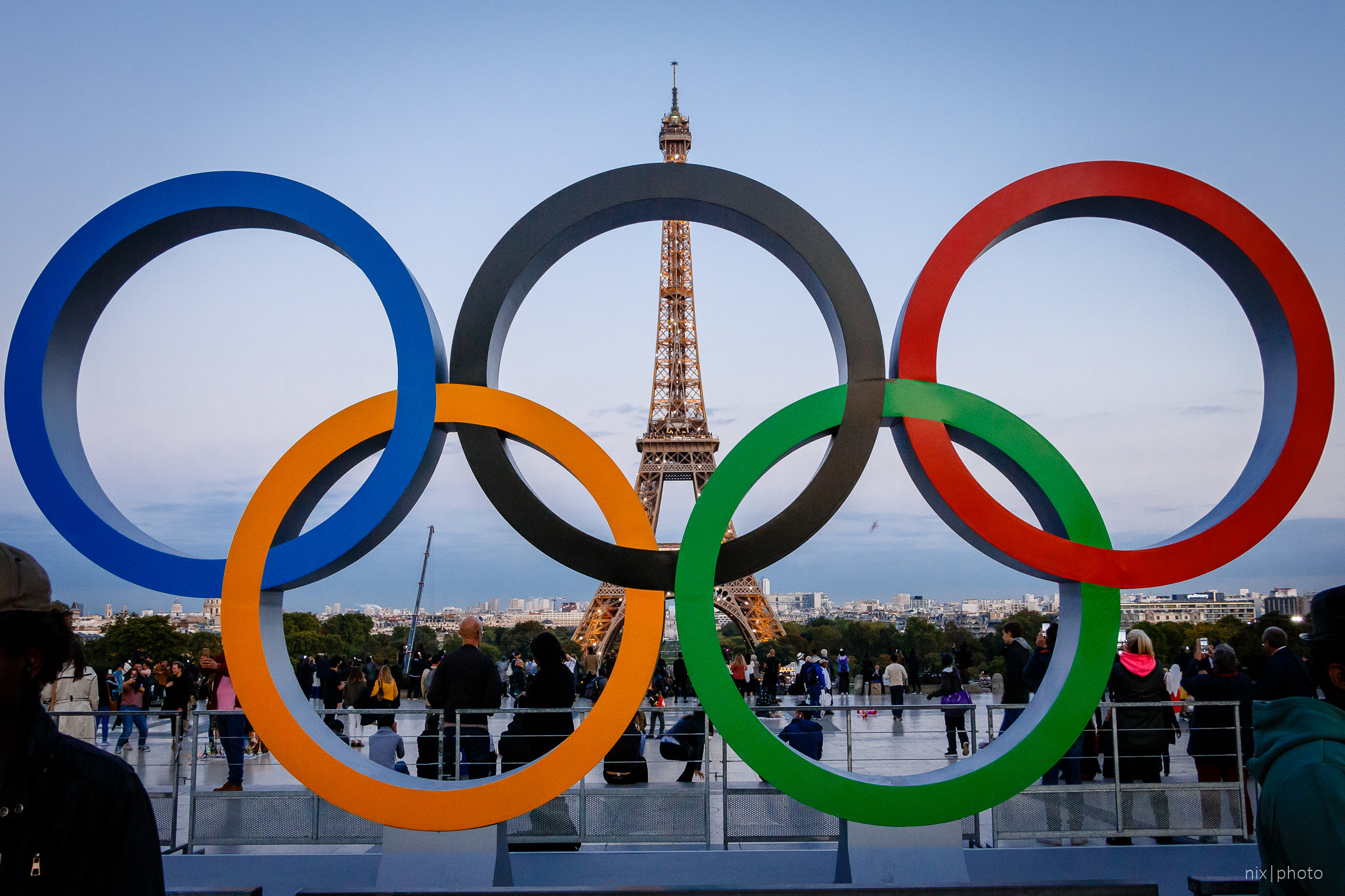By Travers, Simon Fraser University, The Conversation

Paris Olympics 2024 (Photo: nicolas michaud/Flickr, CC BY-NC-ND)
At the last Summer Olympics held in Tokyo, New Zealand weightlifter Laurel Hubbard made history as the first openly transgender athlete in Olympic history. American transgender and non-binary runner Nikki Hiltz recently qualified for the 2024 Paris Games, marking their Olympic debut.
But these two may be among the last transgender athletes to compete at the Olympics for some time due to a reactionary shift in sport policy stemming from conflicts over the participation of transgender women and girls in “female” sports.
While transgender people have gained some recognition and human rights in the past decade, a well-financed reactionary movement is rolling them back. A constellation of white supremacist, conservative and Christian fundamentalist groups and so-called “gender critical feminists” are resisting feminist and gender-inclusive challenges to traditional gender and sexual hierarchies.
These groups are targeting transgender women and girls specifically — more so than transmen and boys, and non-binary people — for surveillance and exclusion. Bills blocking transgender women and girls from participating in “female” sports have been passed in many U.S. states and proposed in the Canadian province of Alberta.
Sport is a human right
The human right of transgender people to participate in all aspects of society — although far from universally affirmed and experienced — is often limited by assumptions about innate biological differences between males and females that suppose men and boys have an athletic advantage.
The debate over the inclusion of transwomen in sports involves questioning whether hormone therapy effectively changes biological characteristics associated with male athletic advantage. These concerns presume transgender athletes have an unfair advantage in women’s competitions because of the apparent lasting effects of testosterone exposure.
Current female eligibility policies for both transwomen and women with higher levels of testosterone than the so-called norm are based on unscientific claims about testosterone. These claims purport that higher average levels of testosterone among people assigned male at birth give them an unfair advantage.
From 2011 to 2021, elite and amateur sporting organizations like the International Olympic Committee (IOC) and the International Amateur Athletic Federation (IAAF) — now World Athletics (WA) — used testosterone levels to determine female eligibility, despite its flawed science.
The assumptions about binary sex difference and female inferiority that motivate and animate female eligibility policies have been put under the microscope by human rights and science-based challenges, with the overwhelming consensus that sex is not binary and sex testing is flawed.
Mandatory sex testing for women athletes was abandoned by the IAAF in 1992 and the IOC in 2000, but selective testing of “suspicious” athletes continued. Selective sex testing and medical interventions disproportionately affect racialized women from the Global South.
Olympic policies
In November 2021, the IOC announced a new policy for transgender participation that relies on sport-by-sport, evidence-based decision-making to determine if transwomen have an apparent unfair advantage.
The new IOC policy refreshingly rules out medically unnecessary treatment and acknowledges the harms past regulations have had on women athletes. However, it abandons its responsibility to support the human rights of transgender and cisgender women athletes. Instead, it leaves individual sport organizations to do the dirty work of drawing boundaries between “real” and “unreal” women and girls.
The harm such assessments will produce was foreshadowed by World Rugby’s 2020 ban on transwomen participating in international women’s rugby competitions. This ban was based on the scientifically unsupported claim that transwomen retain vestigial strength that makes their participation unsafe for their cisgender counterparts.
The NCAA followed suit in January 2022 by replacing their leading-edge transgender inclusive policy from 2011 with one that leaves the inclusion of transgender athletes in the hands of individual sport governing bodies.
The recent success of swimmer Lia Thomas, the first transgender woman to win an NCAA swimming championship, prompted the change. This led FINA, the international swimming body, to effectively ban transwomen from competing in the women’s category. Only swimmers who transitioned before age 12 are permitted to compete in women’s events.
Broader anti-trans campaigns
Efforts to ban transwomen who have gone through male puberty from women’s sports are part of broader anti-trans campaigns that seek to deny transgender youth access to the gender-affirming health care — specifically hormone blockers — required to avoid an unwanted puberty.
Many U.S. states and Alberta have banned, or are planning to ban, access to affirming health care for youth under 16. Transgender women and girls impacted by these bans will never be able to compete in women’s sport. These laws and policies signal to transgender women and girls they are not welcome in sport, and their privacy will be violated if they attempt to participate.
This will particularly impact transgender women and girls who do not or cannot pass as cisgender — either because they choose not to access gender-affirming health care, because they cannot afford it or because they live in areas where it is banned for minors.
As a result, many transgender girls and young women wishing to compete in high school or youth sport may avoid participating in sport altogether. This gender panic has also had consequences for cisgender girls who don’t conform to gender norms, subjecting them to anti-trans surveillance and harassment.
Conservative, anti-trans groups claim to be protecting sport for women and girls by banning the participation of transgender women and girls. However, their actions reveal them as enemies of gender equity and reproductive freedom. What girls and women athletes need to thrive are well-funded and gender-equitable sporting spaces that include transgender women and girls.![]()
Travers, Professor of Sociology, Simon Fraser University
This article is republished from The Conversation under a Creative Commons license. Read the original article.





















